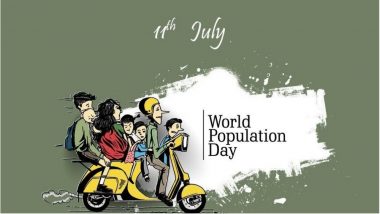Every year World Population Day, a United Nations’ initiative, is observed on July 11, which seeks to focus attention on the urgency and importance of population issues. It was established by the United Nations Development Programme in 1989, when the population hit five billion mark on July 11, 1987. The event is put together to spread information about population-related issues around the world. Each year, World Population Day is given a theme. The theme for 2018 is ‘Family Planning is a Human Right’. This year marks the 50th anniversary of the 1968 International Conference on Human Rights, where family planning, for the first time, globally affirmed to be a human right.
Theme
World Population Day focuses on the need and importance of controlling the increasing world population. Therefore, the theme of 2018 focuses on importance of family planning. The slogan, ‘Family planning is a human right’, recognises the implementation of legislation that definitively stated that woman and girls had the right to avoid exhaustion, danger and depletion from too many pregnancies too close together if they felt it the best route for them.
In her message for the Day, UNFPA Executive Director Natalia Kanem said, “Family planning is not only a matter of human rights; it is also central to women’s empowerment, reducing poverty and achieving sustainable development.” UNFPA supports family planning in developing countries by enduring a reliable supply of a full range of modern contraceptives, strengthening national health systems and promoting gender equality.
Importance
The primary aim is to increase the awareness about reproductive health problems among the people. This is since many pregnant women succumb to poor reproductive health. Research shows that approximately 800 women die every day while giving birth. Population issues also include things like family planning, human rights, right to health, the baby’s health, gender equality, child marriage, use of contraceptives, sex education, knowledge about sexually transmitted diseases, etc.
UN states, ‘Men and women have the right to choose when and how often to embrace parenthood – if at all. Every individual has the human right to determine the direction and scope of his or her future in this fundamental way.’ UN has outlines nine standards to uphold the human right to family planning. These include, non-discrimination, availability, acceptable, good quality, informed decision-making, privacy and confidentiality, participation and accountability. Ms Kanem said, “We are striving to end all unmet need for voluntary family planning in developing countries by 2030.”
(The above story first appeared on LatestLY on Jul 11, 2018 09:32 AM IST. For more news and updates on politics, world, sports, entertainment and lifestyle, log on to our website latestly.com).













 Quickly
Quickly


